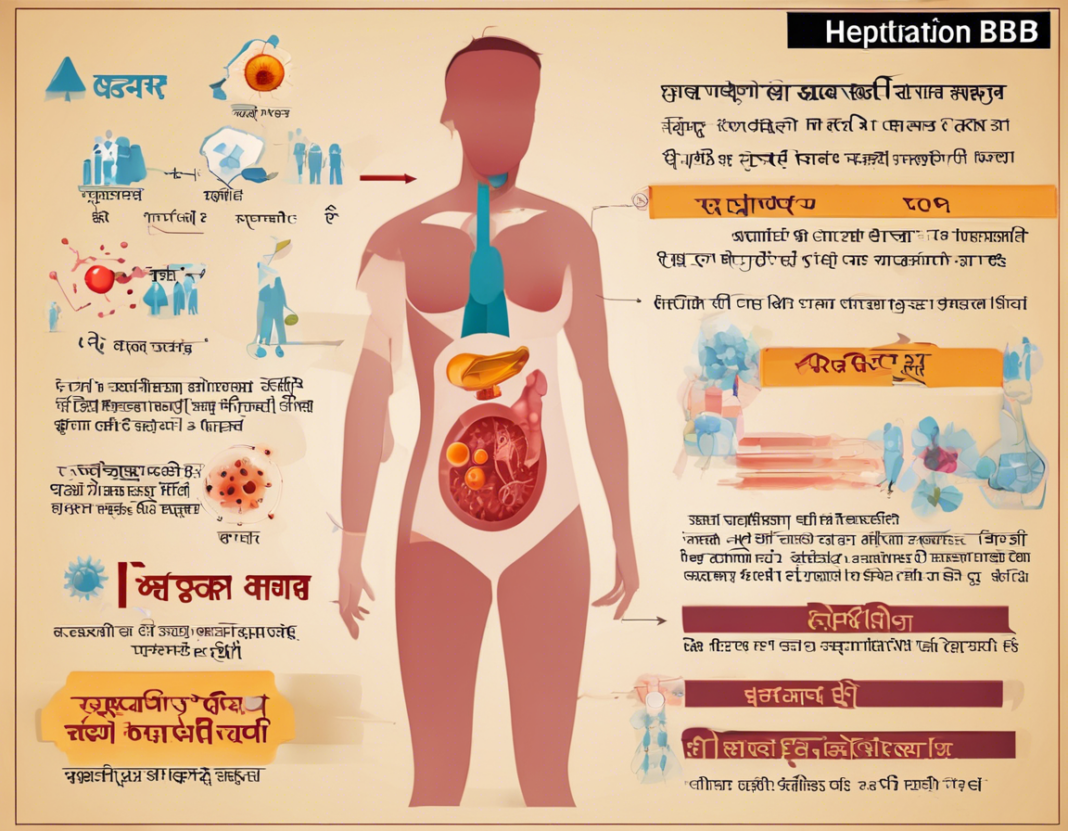Hepatitis B (HBV) is a viral infection that attacks the liver and can cause both acute and chronic diseases. According to the World Health Organization (WHO), an estimated 325 million people worldwide are living with chronic HBV infection. It is a major global health problem and can cause chronic liver disease and puts people at high risk of death from cirrhosis of the liver or liver cancer.
What is Hepatitis B?
Hepatitis B is caused by the hepatitis B virus (HBV) and is a potentially life-threatening liver infection. The virus is transmitted through contact with the blood or other body fluids of an infected person. This can happen through sexual contact; sharing needles, syringes, or other drug-injection equipment; or from mother to baby at birth.
Signs and Symptoms
Many people with Hepatitis B do not have any symptoms and may not know they are infected. For those who do develop symptoms, they may include fever, fatigue, loss of appetite, nausea, vomiting, abdominal pain, dark urine, clay-colored bowel movements, joint pain, and jaundice (yellow color in the skin or the whites of the eyes).
Diagnosis and Treatment
It is essential to get tested if you think you have been exposed to the virus. A simple blood test can diagnose Hepatitis B. There is no cure for HBV, but treatment can help manage the virus and reduce the risk of long-term complications. Treatment may include antiviral medications and regular monitoring of liver function.
Prevention
The best way to prevent Hepatitis B is through vaccination. The HBV vaccine is safe and effective and is usually given as a series of three or four shots. Other preventive measures include practicing safe sex, not sharing needles, and avoiding contact with infected blood.
Complications
If left untreated, Hepatitis B can cause serious complications such as liver damage, cirrhosis, and liver cancer. It is essential to consult a healthcare provider for proper management and monitoring of the infection.
FAQs
1. How is Hepatitis B transmitted?
Hepatitis B is spread through contact with the blood or other body fluids of an infected person. This can occur through sexual contact, sharing needles, syringes, or other drug-injection equipment, or from mother to baby during childbirth.
2. Is there a cure for Hepatitis B?
There is no cure for Hepatitis B, but treatment can help manage the virus and reduce the risk of complications. Antiviral medications and regular monitoring of liver function are common forms of treatment.
3. Who should get the Hepatitis B vaccine?
The CDC recommends that all infants receive the Hepatitis B vaccine at birth, followed by a series of shots. Additionally, the vaccine is recommended for adults at high risk of infection, including healthcare workers, people with multiple sexual partners, and injection drug users.
4. Can Hepatitis B spread through food or water?
No, Hepatitis B is not spread through food or water. It is transmitted through contact with the blood or other body fluids of an infected person.
5. How long does the Hepatitis B vaccine protect you?
The HBV vaccine provides long-lasting protection. Research suggests that immunity to the virus can last for at least 20 years, if not a lifetime, after completing the vaccine series.
6. Can Hepatitis B be prevented if exposed?
If you think you have been exposed to the virus, it is essential to seek medical attention immediately. Post-exposure prophylaxis, which includes a dose of the Hepatitis B vaccine and hepatitis B immune globulin (HBIG) as soon as possible, can help prevent infection.
7. Is Hepatitis B curable with home remedies?
While some home remedies may help alleviate symptoms associated with Hepatitis B, such as fatigue and nausea, there is no scientific evidence to suggest that home remedies can cure the infection. It is crucial to seek medical treatment for proper management.
8. Are there different types of Hepatitis B?
There is only one type of Hepatitis B virus, but there are different stages of the infection. These include acute Hepatitis B, chronic Hepatitis B, inactive carrier state, and reactivation of the virus.
9. Can you get Hepatitis B more than once?
Once you have been infected with Hepatitis B, your body develops immunity to the virus, which means you are protected from getting infected again. However, there are rare cases of reactivation of the virus in people with chronic HBV infection.
10. Is there a link between Hepatitis B and liver cancer?
Yes, Hepatitis B is a major cause of liver cancer worldwide. Chronic infection with the virus can lead to liver inflammation, cirrhosis, and eventually liver cancer. Regular screening and monitoring are essential for early detection and proper management.
In conclusion, Hepatitis B is a serious viral infection that can have severe consequences if left untreated. It is vital to understand the risks, symptoms, and preventive measures associated with the virus. Vaccination, regular testing, and timely treatment can help control the spread of Hepatitis B and reduce the risk of long-term complications. If you suspect you have been exposed to the virus, seek medical attention immediately for proper diagnosis and management.

